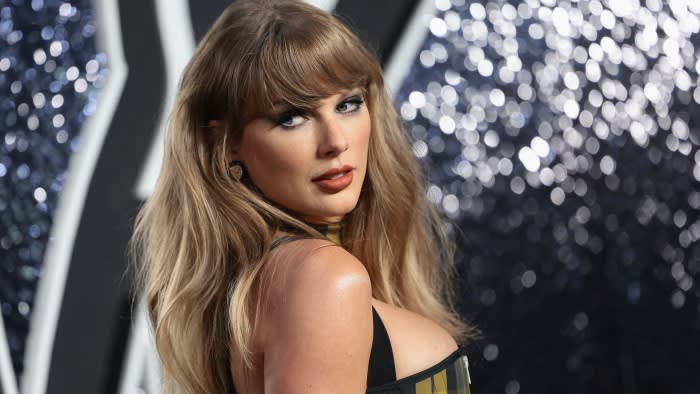Stay informed with free updates
Simply sign up to the Artificial intelligence myFT Digest — delivered directly to your inbox.
Universal Music and Warner Music are nearing landmark AI licensing deals, according to people familiar with the matter, as record labels try to set the terms for how tech groups pay for music.
Universal and Warner — homes to acts including Taylor Swift, Kendrick Lamar, Charli XCX and Coldplay — could each strike deals with artificial intelligence companies within weeks, the people said.
Talks have involved start-ups including ElevenLabs, Stability AI, Suno, Udio and Klay Vision, the people said.
The music companies are also in talks with large technology groups including Google and Spotify.
The labels see the talks as a proactive way to handle disruption by AI and avoid the mis-steps of the internet era — a moment that nearly destroyed their business at the turn of the millennium.
The talks have centred on how the labels license their songs for creating AI-generated tracks and for training large language models, according to people familiar with the matter.
They are seeking a payment structure similar to that for streaming, whereby playing a song triggers a micropayment. To calculate payments, the labels want AI groups to develop attribution technology, akin to YouTube’s content ID system, that can identify when their music is used.
It was unclear which companies were closest to striking deals, people involved in the talks said.
Spotify was still in the early stages of exploring how to integrate generative AI tools to its platform and no deal was imminent, said three people with knowledge of the matter.
The music labels hoped the landmark deals would set a precedent for how AI companies pay for music, said people familiar with the discussions, although the models may differ for each platform.
AI-generated tracks are increasingly infiltrating streaming services. French streaming service Deezer said in September that nearly a third of the tracks uploaded to its platform were AI-generated. Last week, Spotify said it removed 75mn “spammy” AI-generated tracks in the past year.
Sony Music, the third major and home to Adele and Beyoncé, said: “We are in discussions with companies that have ethically trained models and that benefit our artists and songwriters.”
Elliot Grainge, chief executive of Atlantic Records, likened the current moment to the “Napster and LimeWire phase of 2002”, when new free music-sharing services hammered the music industry, but said he was “very bullish” about the opportunity.
“We saw an industry lose 50, 60, 70 per cent of its value . . . Labels have a responsibility to negotiate the best deals for their artists — and they’re really good at that. They learned from their mistakes in the past. They understand survival now because of that tumultuous period,” Grainge told the Financial Times last month.
“I have great faith in the soon-to-be marriage between rights-holders, artists and these AI platforms,” he said.
Executives cautioned that the deals would be more complex than those in streaming, as AI can use music in unclear ways — not just playing songs or making tracks — and artists might be wary.
Recommended
“What’s different is when you take the entire history of music and feed it into a model that produces something unrecognisable. The question is: are artists going to get on board?” said one senior label executive.
“It depends on the contract. Most say: ‘I trust you to do the right deals on my behalf.’ It would be impossible to go back to artists each time and ask, ‘Are you OK with this use of your music?’ At some point, there will be a big precedential deal,” the executive said.
In 2024, the leading record companies sued Suno and Udio for copyright infringement. But they were now in talks with both start-ups and hoped to reach licensing agreements that would include a settlement for past use of their music, said people familiar with the discussions.


